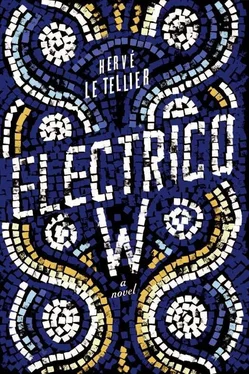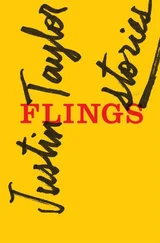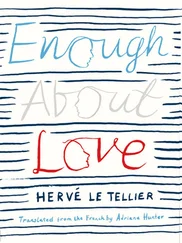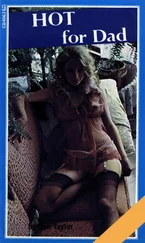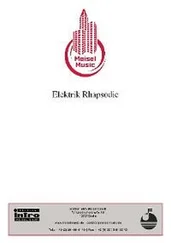I watched the man. He stood there motionless. His lips were moving, but his hands weren’t joined, and I thought he can’t have been praying, but talking, to his wife, really talking.
Yes, it must have been Ruiz Custódia. To make sure, I hid and called out his name. He turned around, looked for whoever had called him. But that didn’t prove anything: that woman over there also turned to look at me.
He stayed by his wife’s grave a long time, still talking under his breath. It wasn’t all that absurd, after all, at least no more so than going to a cemetery at all, no more ridiculous than laying flowers to honor a few bones.
In the early years, my father also used to go to the cemetery on a Sunday, almost once a month. He would stare at the headstone, reading our mother’s name over and over, even repeating it to himself, as if afraid of forgetting it, or of forgetting his pain: Anne Balmer.
The cemetery was miles from anywhere, lost in the northern suburbs of Paris, and I used to take him in my old Saab, when my brother asked me to do it on the pretext that he didn’t have time. I would go all the way to the graveside with my father, my eyes lowered, remorseful for my absence on my mother’s last day, but also in disgust for this old man mumbling a dead woman’s name.
We went there twenty or thirty times and then one morning, because my father’s muttering was louder than usual and people were watching us in embarrassment, I whispered, “There’s no point coming here, Dad. It just hurts you.”
He turned to me, almost spitting in my face: “But that’s exactly why I come here, to be hurt. What did you think, that it was for her? She doesn’t give a damn now, Annette doesn’t, she doesn’t give a damn, and you, you think I’ve gone crazy, don’t you, that’s it, my own son thinks I’m crazy!”
He took me by the lapels of my jacket and started shaking me, harder and harder, as if he wanted to fight. Then he let go abruptly, I could tell his legs couldn’t hold him and he collapsed on the path without even trying to clutch hold of me. There he was on the ground, crying, making little whimpering sounds like a mouse. I didn’t recognize him and felt ashamed and frightened, witnessing this old man’s madness. Shame, fear. I remember those two feelings, that had been reduced to one. I wanted to help him stand up, brush him down like a child, his pants had slick yellowish mud on them, but he pushed me away.
“Leave me alone. Leave me alone, I tell you.”
He stood up, wiped his eyes, brushed off his pants and jacket, and started limping quickly toward the gate.
I followed just behind him. He opened the gate, walked past the Saab, and crossed the street, almost tripping. I was still behind him, watching the street, afraid he might throw himself under the next car.
We walked on until we came to a bistro, a sort of small-town cafe and store, and my father went in. There was a bar, a newspaper stand, and four or five tables, all deserted. At the back, in another room overlooking a grim courtyard, was a large French billiards table with green baize. My father went up to the bar, ordered a draft lager from a man in a gray overall, and went to sit in a corner of the games room. I asked for a coffee.
“Are you together?” the man asked.
I said that he was my father … but the man shook his head as if that wasn’t an answer.
On the baize, the three balls were set out in their prescribed positions, and my father took a cue down from the wall. He drained his beer without pausing for breath and started to play, alone. I drank my coffee in silence, leaning against the wall, watching the balls gliding, my mind blank.
The black ball hit the cushion and missed the white. My father handed me the cue, took down another, and went to the bar to ask for two more beers. One for me. We played, without exchanging a word. My father kept score and ordered the beers; occasionally he sighed, especially when his shot was particularly inept. We must have played for an hour, or a little less. My ears were buzzing, from all those beers on an empty stomach. Toward midday, the cafe started to fill up with regulars, people who worked locally.
My father put down his cue.
“Come, let’s eat.”
The dish of the day was a too salty portion of salt pork with lentils. He gulped it down in no time, wiped the sauce from his plate with bread, and, when I was only halfway through my meal, put some money on the table.
“Hurry up and finish, Vincent. This place is dismal.”
We went back to the Saab. My father reached out his hand. I didn’t understand what he meant, I thought he wanted to leave, that this was a wave goodbye. My heart constricted, for a moment I thought in terror: I’ll never see him again.
But he was waggling his hand as if wanting something.
“The keys. The keys to your car. Give them here. I’m driving.”
He stayed at the wheel all the way to his house, driving too fast and not saying a word. On the corner of the street he cut the engine and climbed out, not in any rush. I was about to start the car up again when he crouched by the door, looked at me for a moment, and just said, “It’s fine like this. Don’t worry about me. See you soon.”
He smelled of beer. I watched him walk away and open his door. At the last moment he turned around, waved, and, I think, winked.
A few weeks later Paul asked him whether he wanted anyone to put flowers on the grave, and was even going to add “for All Saints’ Day,” but my father waved his hand back and forth vigorously. Over the next five years we never went back to the cemetery with him. Except to bury him, two months ago now, beside our mother.
In the distance, Custódia had put his hat back on his head and walked away.
He trudged heavily. As he passed the bin for flowers, he threw in the crumpled paper, then put his hands in his pockets and hunched over as if he were cold. When he left the cemetery he climbed into an old truck with chipping paintwork. It was still possible to make out the words ETS CUSTÓDIA — PRAGAL. 2800.
I thought that would be enough of a lead, and didn’t try to talk to him. Sure enough, in the Pragal telephone book, I found “Estabelecimento Ruiz Custódia. Cabinetmaker.”

THAT EVENING I found Antonio leaning on the bar at the hotel, drinking a whiskey. He was talking to the barman, passing the time of day. My eye came to rest on the back of his neck, and I looked at it for a long time.
So, Irene, this was all he turned out to be, this lover of yours. This short little guy, stooped even, drinking with no sense of style, his hair thinning on the back of his head, this guy who didn’t even know how to wear a jacket.
As if sensing me behind him, Antonio turned around. He smiled and I returned the smile. He seemed to be waiting for a question, a sign of complicity, but I just sat next to him. I ordered a whiskey too, and then gauged his reaction as I said, “I went for a walk. All the way to the cemetery on the other side of the bridge.”
“Took notes as usual?”
He swallowed some of his drink and I thought I detected a hint of mockery in his voice, as if I attached more importance to my notes than they deserved.
“As usual, yes …,” I smiled.
Nothing ever drives me to write, I’m not heckled by tides of words. There is so much vanity in it that I write only to feel worthy of my own respect.
And the characters always prevail in the end, the way dreams prevail over life, fantasy over love. Even your face, Irene, is disappearing behind the face of the woman who bears your name here. From one page to the next, I’m drying you out, withering you, and sooner or later you’ll be swallowed up by the Irene in this novel, who’s so much more alive than you.
Читать дальше
